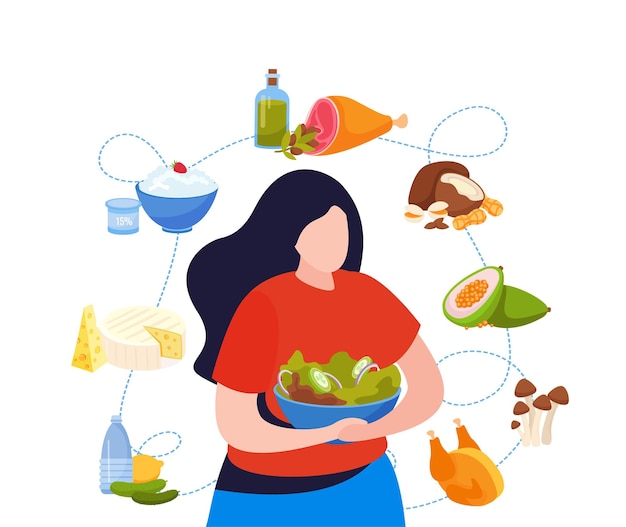Agribusiness and Our Food
Agribusiness has distanced us from the origins of our food and altered it so much that what our grandparents ate is vastly different from what we consume today. Many ingredients in modern foods didn’t even exist a few years or decades ago. Take artificial sweeteners like acesulfame potassium, aspartame, and saccharin, for example. These ingredients are often hidden under generic terms, making it easy to consume them without realizing it.
What Should You Look Out For?
It’s best to avoid a diet based on unnatural substances or processed foods. To keep things simple, steer clear of prepared, processed foods. This means avoiding most supermarket offerings and opting for real foods from organic farms. Shopping around the perimeter of your grocery store, where the produce, bulk bins, dairy, and meat sections are, can help you stick to natural, whole foods. This advice isn’t just for pregnant women; everyone benefits from choosing natural foods.
Artificial Sweeteners
Aspartame can be particularly harmful to a fetus and the mother. Studies have shown that the offspring of rodents fed aspartame had higher rates of liver and lung cancer. Aspartame is also an excitotoxin, which means it can overstimulate neurons to the point of death, affecting learning and emotional function. It metabolizes into formaldehyde, a poison that binds to bodily tissues. Do you really want this happening while carrying a baby?
Neotame is similar to aspartame but even sweeter and more toxic. Despite the FDA’s claims of its safety, a review in the journal Regulatory Toxicology and Pharmacology found that the studies supporting neotame’s safety had inappropriate endpoints. Therefore, neotame has never been conclusively shown to be safe.
Sugar
When it comes to sweeteners, natural alternatives are the best choice. Stevia, in its natural form (leaf, dried powdered leaf, or extract), is the safest option. Real sugar should be used sparingly as it causes blood sugar and insulin spikes, which can lead to diabetes and predispose your infant to the same condition. Other natural sugars like agave and corn syrup should be avoided due to their high fructose content, which is harmful to the liver.
Honey is a bit more complex. While raw honey can provide significant health benefits, it contains fructose and glucose, so it should be consumed in moderation, especially by those with insulin sensitivity issues. Organic maple syrup is another viable option, rich in antioxidants, but it is still a sugar and should be taken in small amounts.
Genetically Modified Foods
Avoiding genetically modified (GM) foods during pregnancy is wise. GM foods are created in labs by altering the DNA to improve crop hardiness. While the intention is good, the health effects are controversial. Studies have shown that the offspring of rats fed GM soy died before reaching three weeks of age. Since the placenta doesn’t block much of what is consumed, any food affecting the mother can also affect the fetus.
Avoiding GM foods can be challenging but not impossible. In the United States, avoid foods from most restaurants and prepared foods from supermarkets unless they are organic. The Non-GMO Shopping Guide can help you find non-GM foods.
Prepared Foods
Processed foods are almost always questionable in terms of health. They often contain genetically engineered ingredients and are nutritionally deficient, consisting mainly of processed grains and lab-produced chemicals. Therefore, it’s best to avoid most supermarket products and fast food.
Herbicides and Pesticides
Modern farming uses pesticides and herbicides, which are poisons designed to kill. The National Pesticide Information Center states that all pesticides pose some risk during pregnancy. Therefore, even fresh foods need to be free of pesticides.
The only sure way to avoid pesticides is to eat organic foods. Washing non-organic foods isn’t enough, as some pesticides can latch onto plants and resist water-based removal methods.
The Take Home
As an expectant mother, you have the final say in what you eat. While it’s okay to indulge in a treat occasionally, balance it with plenty of raw vegetables, nuts, seeds, and other plant-based foods to provide the protection you and your child need.

